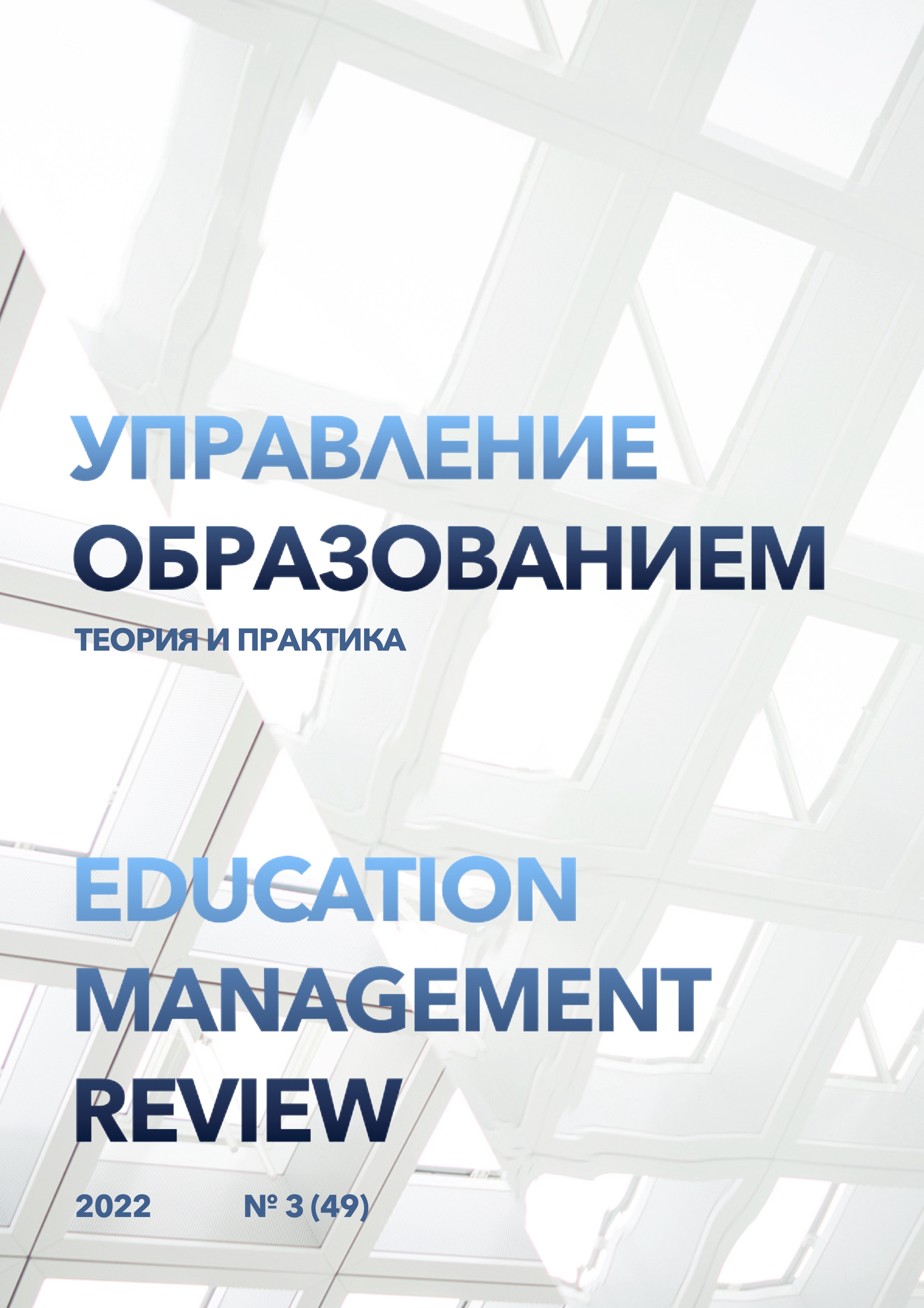Conceptual foundations for the formation of functional mathematical literacy of younger students
DOI:
https://doi.org/10.25726/c2729-4001-2621-kKeywords:
functional mathematical literacy, conceptual foundations, task typology, tasks with a meta-subject componentAbstract
The article defines the conceptual foundations for the formation of functional mathematical literacy of younger schoolchildren: meta-subject coordination and interdisciplinary integration. Meta-subject coordination implies the coordination and appropriate correlation of meta-subject skills and universal actions of students used in "life" situations. The key meta-subject skills include the ability to work with information, communication skills in relation to practical, life situations and tasks, groups of regulative skills of students that are important for the formation of functional mathematical literacy have been identified: planning, self-control and self-assessment, the choice of effective methods of action. Interdisciplinary integration is based on the use of interdisciplinary connections and interdisciplinary content of elementary school academic disciplines, which contributes to the systematic assimilation of the fundamentals of science, enriches students with the ability to use cognitive methods of a general scientific nature. A typology of tasks is presented (tasks for knowledge, application, reasoning under conditions of certainty and reasoning under conditions of uncertainty), the possibilities of tasks with a metasubject component in the formation of functional mathematical literacy of students are shown, examples of tasks are given. The study of the conceptual foundations was carried out using research methods: analysis of scientific literature, comparative analysis, observation, induction, interpretation, testing, mathematical statistics. The study made it possible to identify the conceptual foundations for the formation of functional mathematical literacy of younger schoolchildren and draw a conclusion about the effectiveness of using tasks with a meta-subject component.
References
Азимов Э.Г., Щукин А.Н. Новый словарь методических терминов и понятий (теория и практика обучения языкам). М.: Икар, 2009. 448 с.
Безукладников К.Э. Крузе Б.А., Мелехина Е.С. Учебное исследование как средство формирования учебно-познавательной компетентности обучающихся младшего подросткового возраста на уроках английского языка // Язык и культура. 2019. № 48. С. 259-276. DOI 10.17223/19996195/48/17.
Берталанфи Л. Общая теория систем – критический обзор // Исследования по общей теории систем. Сб. переводов. М.: Прогресс, 1969. С. 25-27, 31, 43.
Быстрова В.Е., Кондратьева М.Б., Платонова С.М., Попова О.О. Материалы к семинару «Системный подход в работе методического отдела». Санкт-Петербург, 2006. 40 с.
Губанова М.И., Лебедева Е.П. Функциональная грамотность младших школьников: проблемы и перспективы формирования // Начальная школа: до и после. 2009. № 12. http://school2100.com/izdaniya/magazine/archive/2009-12
Егоров К.Б., Захарова В.А. Как организовать себя: опыт независимой оценки регулятивных умений в дистанционном учении и преподавании // Научно-педагогическое обозрение (Pedagogical Review). 2021. Вып. 3 (37). С. 186-196.
Захарова В.А., Безукладников К.Э., Крузе Б.А. Оценка иноязычных коммуникативных умений как составляющих функциональной грамотности // Вестн. Том. гос. ун-та. 2021. № 470. С. 156- 168.
Использование практико-ориентированных заданий при обучении математике с целью развития математической грамотности школьников. http://collegy.ucoz.ru/publ/39-1-0-16692
Леонтьев А.Н. Деятельность. Сознание. Личность. М.: Смысл, Академия, 2005. 352 с.
Национальный проект «Образование». Раздел официального сайта Министерства просвещения Российской Федерации. https://edu.gov.ru/national-project/
Новиков Д.А. Статистические методы в педагогических исследованиях (типовые случаи). М.: МЗ-Пресс, 2004.
Основания дидактических решений, направленных на формирование функциональной грамотности младших школьников: коллект. моногр. / К.Э. Безукладников, И.Н.Власова, Д.Л. Готлиб [и др.]; науч. ред. К.Э. Безукладников, В.А. Захарова; под общ. ред. М.А. Худяковой; Перм. гос. гуманит.- пед. ун-т. Пермь, 2021. 252 с.
Панина Е.Ю., Данилова А.С. Формирование метапредметных коммуникативных умений в процессе обучения иноязычному говорению младших школьников // Проблемы романо-германской филологии, педагогики и методики преподавания иностранных языков. 2014. № 10. С. 165-169.
Селькина Л.В., Худякова М.А. Математические задания с метапредметным компонентом // Начальная школа. 2017. № 5. С. 35-40.
Сравнительный анализ подходов, программ и методик формирования функциональной грамотности младших школьников: коллект. моногр. / К.Э. Безукладников, И.Н.Власова, Д.Л. Готлиб [и др.]; науч. ред. К.Э. Безукладников, В.А. Захарова; под общ. ред. М.А. Худяковой; Перм. гос. гуманит.- пед. ун-т. Пермь, 2021. 170 с.
Федеральный государственный образовательный стандарт начального общего образования / М-во образования и науки Рос. Федерации. М.: Просвещение, 2021. 57с.
Функциональная грамотность младшего школьника; книга для учителя / Н.Ф. Виноградова, Е.Э Кочурова, М.И. Кузнецова и др.; под ред. Н.Ф. Виноградовой. М.: Российский учебник: Вентана-Граф, 2018. 288 с.
Худякова М.А., Власова И.Н., Селькина Л.В., Худякова А.В., Шустова С.В. (2021) Основы формирования функциональной грамотности школьников. Revista Tempos E Espaços Em Educação, 14 (33), e16757. DOI: https://doi.org/10.20952/revtee.v14i33.16757
Хуторской А.В. Ключевые компетенции и образовательные стандарты // Интернет-журнал «Эйдос». 2015. № 6. С. 124-126.
Хуторской А.В. Ключевые компетенции. Технологии конструирования // Народное образование. 2003. № 5. С. 55-61.
Щукина Г.И. Роль деятельности в учебном процессе. М.: Наука, 1961. 142 с.
Bertalanffy L. Von. Das biologische Weltbild: Die Stellung des Lebens in Natur und Wissenschaft. Neudruck. Wien-Koeln, Böhlau Verlag 1990. S.185.
Cencelj, Zvonka & Abersek, Metka & Abersek, Boris & Flogie, Andrej. (2019). Role and meaning of functional science, technological and engineering literacy in problem-based learning. Journal of Baltic Science Education. 18. 132-146. 10.33225/jbse/19.18.132.
O'Donnell Angela M., Dansereau Donald F., Rocklin Thomas, Hythecker Velma I. and Young Michael D., Hall Richard H., Skaggs Lisa P., and Lambiotte Judith G. Promoting functional literacy through cooperative learning // Journal of Reading Behavior, 1988, Volume XX, No. 4 С. 339-356.
Rydze O.A. Learners’ achievements in mathematical information processing at primary school / The European Proceedings of Social & Behavioural Scieces (EpSBS), Moscow, Russia, 07-08 June 2017. – Moscow, Russia: Future Academy Future Academy, – 2017. – 599 p. Р. 512-522. –DOI: 10.15405/epsbs.2017.08.60.




